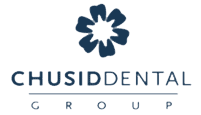sleep apnea
Breathe Easier, Sleep Better
We're concerned about the overall health of our patients, including their sleep health. Many people suffer needlessly from dangerous sleep disruptive disorders that keep them from getting enough oxygen at night. The risk of a heart attack is 23 times more likely than average with a sleep disorder, and 92% of stroke victims live unknowingly with sleep apnea before having a stroke. Our training allows us to offer you education and treatment surrounding sleep health most simply and cost-effectively possible.
Estimates suggest that more than twelve million Americans have obstructive sleep apnea (OSA). Most cases are still undiagnosed, contributing to diabetes, high blood pressure, hypertension, congestive heart failure, coronary artery disease, and traffic accidents related to drowsy driving. Dentistry serves a vital role in treating this silent epidemic. The American Academy of Sleep Medicine recommends oral appliances as primary therapy for the treatment of mild to moderate obstructive sleep apnea and for patients with severe sleep apnea who can't tolerate CPAP treatment.
What is OSA?
OSA is a breathing disorder characterized by brief interruptions of breathing during sleep due to a blockage in the airway. Obstructions occur when throat muscles, the tongue, tonsils, or the soft palate relax and cover the airway, preventing breathing. The obstruction results in a severe drop in blood oxygen levels throughout the night.
OSA is typically diagnosed using a sleep study. During a sleep study, a sleep physician monitors brain activity and body system functions while a patient rests overnight at a sleep lab. The specialist evaluates the data collected to diagnose sleep disorders and recommend treatment. If prescribed by the sleep doctor, a dentist trained in sleep medicine works with them to treat obstructive sleep apnea with oral appliance therapy. In some cases, a home sleep study may also be possible instead of reporting to a sleep lab.
How Is OSA Treated?
Treatment of snoring and obstructive sleep apnea may involve surgery, CPAP or BiPAP machines, or oral appliance therapy. Oral appliances provide the least invasive option and are often a good choice for treatment of mild to moderate OSA. A carefully calibrated appliance like a CPAP or BiPAP can comfortably help hold the jaw in a precise position throughout the night.
All treatment recommendations should be made in conjunction with your sleep physician. If appliance therapy is selected, it's essential the right positioning is used to maintain an open airway.
